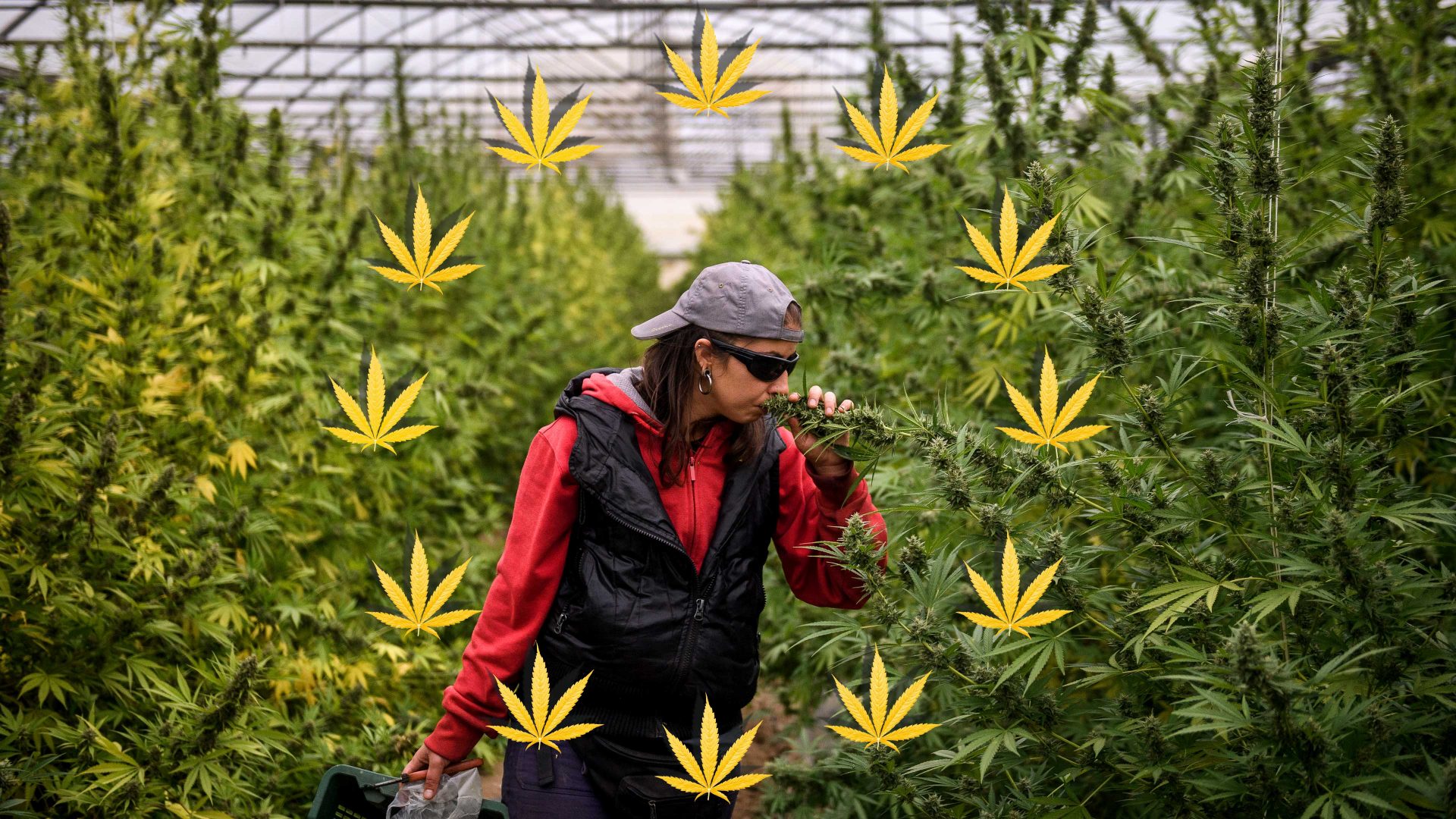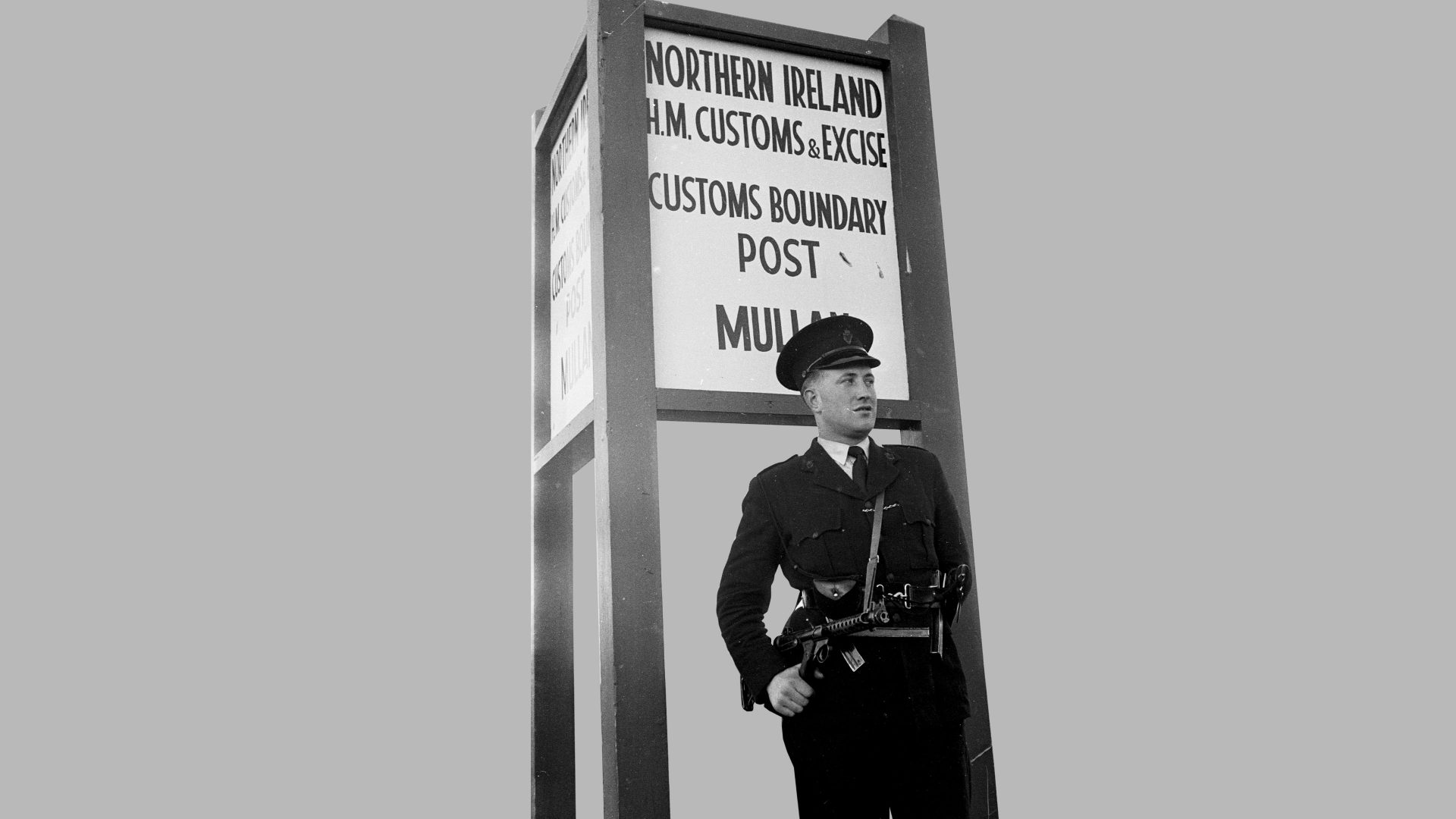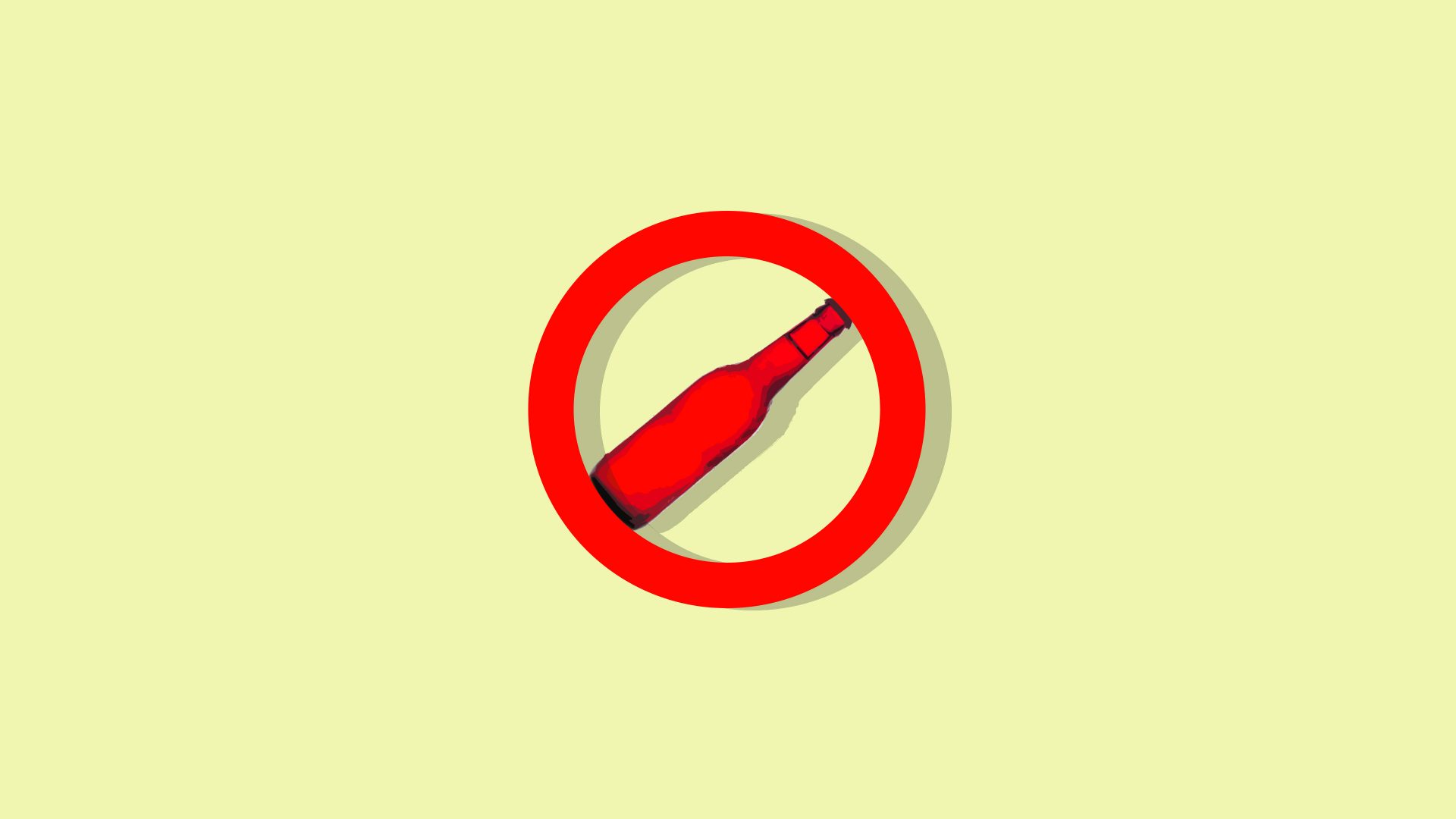When it comes to legal cannabis, Canada is the poster boy. Since it legalised the drug in 2018, pictures of neat rows of cannabis plants in pharmaceutical-style warehouses and streamlined dispensaries serving umpteen pot products have advertised its progressive attitude towards something that in many other countries could put you in jail.
Several US states have followed suit – instead of dealers, people can now just pop to the corner store.
But Europe, home of the chill Amsterdam coffee shops and 19th-century opium-eating bohemians, is lagging behind. Even medical cannabis was only legalised recently, and in a patchy way. Germany made it legal for doctors to prescribe medical cannabis in 2017, while the UK and Greece waited until 2018, the year Canada was welcoming recreational cannabis.
This could be about to change. Europe is on the cusp of a legal cannabis revolution as a stream of recent trials and policy changes for legal weed is poised to turn into a flood, raising the prospect of a growing market that could surpass what’s happening across the Atlantic.
“I don’t think people quite realise just how much has been happening in Europe – lots of small things that add up to significant change,” Alastair Moore, founder of the marijuana-focused research firm Hanway Associates, told me. Europe is just a few years behind North America on cannabis legalisation, he said – its time is coming.
Such a development would fall on increasingly fertile ground as European citizens become used to the idea. According to a new survey by Hanway Associates – Recreational Europe – more than half of Europeans support cannabis legalisation, their decades-long opposition softened by the gradual expansion of the medical cannabis market and CBD wellness products. Italy and Portugal were the keenest, but the UK was close behind – with 55% support.
Cannabis is still criminal in the UK, and there isn’t much real public debate on legalisation – neither of the two main political parties officially support it, although the Greens and the Liberal Democrats do. So I was surprised to find at a seminar for cannabis entrepreneurs that investors were targeting the UK, where private medical cannabis prescriptions have been growing. It turns out the UK has become the world’s largest producer and exporter of cannabis for medical and scientific purposes, despite the difficulties patients face in trying to obtain it. “The UK is a sleeping giant and it will wake up for sure,” said Timo Bongartz of the Texas-based company Fluence. “It could be the next huge market in Europe.”
There are British MPs on both sides who have been increasingly vocal in calling for legalisation, including the Labour shadow foreign secretary, David Lammy, and Conservative MP Crispin Blunt, who believes some sort of legalisation is needed to destroy the criminal business model around cannabis and has called the UK’s current prohibitive drugs policy a disaster.
Moore says: “The consensus now across the western world is that prohibition isn’t the best way to deal with the societal harms associated with cannabis. It clearly wasn’t stopping youth access – youth access and adult access is very high in Europe – and created a shadow market. Legalisation is a very useful tool whether you do or you don’t think people should use cannabis.”
Prohibition Partners, a cannabis information and data analysis company, predicts in its new European Cannabis Report that: “The first ever sales of fully-legal adult-use cannabis in Europe will be seen in 2022.”
Entrepreneurs and investors are salivating at the thought. Who can blame them? The 21st-century “Green Rush” has been growing exponentially, and last year global cannabis sales reached $37.4bn (£30bn), according to Prohibition Partners. It’s projected to reach $102bn (£81.7bn) by 2026.
But like the Gold Rush before it, the Green Rush comes with risks attached, so European countries have been cautious even as strong grassroots movements egged them on.
Canada, Uruguay and some US states are the only places where cannabis has been legalised so far. But several countries in Europe are slowly taking their first steps in that direction, mostly by decriminalising – removing criminal sanctions for small-time users – or staging controlled trials. Switzerland, the Netherlands and Denmark have planned pilot schemes for legal cultivation and sales.
Many pursue decriminalisation as a precursor to going to whole legal hog. These include Spain and the Netherlands, both of which have legally grey markets with their cannabis clubs and coffee shops, supplied by the black market, and Georgia. Ireland’s Dáil is expected to discuss a decriminalisation bill this summer.
In December, Malta made headlines for introducing the first comprehensive legal protection for personal consumption in Europe. Adults can carry up to seven grammes of weed and grow up to four plants at home. They can join associations set up to distribute the drug or seeds for cultivation, but they can’t smoke in public or in front of minors. However, for all the fanfare, this is more like partial decriminalisation, since behaviours such as sharing are still punished and possession of even very small amounts at home can be categorised as trafficking. It’s similar for Luxembourg, which had been considering full legalisation but instead legislated to remove criminal penalties for possessing three grams and limited home cultivation.
Swifter legislation might come elsewhere. Switzerland could start some of its multiple trials by the summer. Under a pragmatic pilot scheme that’s expected to produce copious useful data, any local government in the cantons will be able to authorise a trial for recreational cannabis, involving a maximum of 5,000 people and a backer, such as a university scientific group.
The planned trials in the Netherlands, where the government granted 10 licences for the production of cannabis to supply some coffee shops, are expected to lead to legal alternatives to the existing, problematic model, whereby the goods consumed by all those stag-night revellers and curious tourists come from illicit, unregulated suppliers.
“It’s very promising. The bar for success is just if things don’t really get worse – this means it’s unlikely they’ll backtrack on this,” said Moore, who won one of the licences on behalf of a client. “It’s not very Dutch or European to let people build £30m facilities and then let them shut them down.”
But the biggest fish here is Germany. Since the government came to power with a promise to legalise cannabis, expectations have been high that soon Europe will have its first fully legalised cannabis market – a global gamechanger.
“Our minister of health has just announced that our government will provide a first draft of the new cannabis law in 2022,” said Niklas Kouparanis, co-founder of Bloomwell Group, Germany’s largest cannabis company. “This is a clear message for those who hesitate: Germany will become the world’s biggest cannabis market most likely within the next two years.”
“Germany has the unique opportunity now in terms of being a role model for the world for how legalisation is done,” Kouparanis told me. What’s happening in Europe so far is encouraging, he said, but it “isn’t legalisation in terms of how we think legalisation should be done in order to really drain the illicit market and have product safety and also youth control.”
Germany’s advantage over the North American pioneers is that it can learn from their mistakes. Kouparanis is clear that a successful market can’t be fragmented like the US – federal rules and regulations must apply everywhere. Imports should be allowed from trusted sources in the Mediterranean and Latin America to ensure enough legal, quality supplies – Germany cultivates a maximum 2.6 tonnes of medical cannabis annually, yet projected demand by the Duesseldorf-based economist Justus Haucap for the first year of legalisation is around 400 tonnes of flowers. Good distribution and plentiful official sales outlets are vital to sideline dealers, as is the right tax level.
Once Germany legalises cannabis, there could be a snowball effect as European countries that have decriminalised find the confidence to move to the next stage. Perceptions are already being changed by the successful use of medical cannabis.
But one of the most fascinating test cases for relaxing drugs prohibition is an old one, and does not involve any legalisation measures. Portugal decriminalised the possession and consumption of all drugs more than 20 years ago. Having missed the free-for-all experimentation of the 1960s under the long dictatorship of António Salazar, the Portuguese emerged blinking into the modern world and swiftly became hooked on drugs. With misuse rife and deaths on the rise, enterprising doctors helped to create a health-first policy that focused on treatment, reducing harm and providing safe, supervised spaces for consumption. Levels of drug use in Portugal, whose politicians now support legalisation, are lower than many other European countries.
There are almost as many ways to relax drug prohibition as there are varieties of cannabis products in Canada and California. The current patchwork of initiatives with varying degrees of criminality embeds loopholes that can still benefit organised crime and cause confusion. In March, Maltese police unsure about the new laws arrested a doctor for distributing cannabis to his patients to relieve back pain. An “appalling and worrying” development, said the pro-legalisation NGO ReLeaf Malta.
Canada’s first years have been painful. The initial Green Rush, like the dotcom boom, imploded after a first burst of over-enthusiasm. Millions of dollars of shareholders’ money went into enormous cultivation sites, but this created a glut of product that wasn’t matched by the patchy retail opportunities. Some greedy and inexperienced new producers rushed the growing and processing to create an inferior product, while high taxes allowed illicit growers and dealers to offer a cheaper, more convenient service. Two years after legalisation, less than a third of users bought all their cannabis from legal sources. That’s market forces for you.
As suppliers plunged into the recreational market, shortages were created on the medical side, forcing medical users to buy sometimes inappropriate weed from shops instead, a dangerous option for the more vulnerable, such as people with multiple sclerosis and epilepsy.
It’s a cautionary tale but, three years in, the picture is improving. In a report released earlier this year, Deloittes found that legalisation has contributed $43.5bn (£35bn) to Canada’s national GDP, with the nascent industry generating $11bn (£8.8bn) in nationwide sales and creating 98,000 jobs. From an economic perspective, the cannabis industry has been a “great success, with more to come as it continues to grow”. The illicit market is being eroded and pushed online.
But one major, lingering worry, also mentioned by Deloittes, remains – social justice – or lack of it.
In an astonishing revelation in Harper’s magazine in 2016, the writer Dan Baum, author of Smoke and Mirrors: The War on Drugs and the Politics of Failure, recalls an old interview with Watergate co-conspirator John Ehrlichman, whose boss, Richard Nixon, invented the term “war on drugs”.
“The Nixon campaign in 1968, and the Nixon White House after that, had two enemies: the antiwar left and black people,” Nixon’s former domestic policy chief reportedly told Baum. “You understand what I’m saying? We knew we couldn’t make it illegal to be either against the war or black, but by getting the public to associate the hippies with marijuana and blacks with heroin, and then criminalising both heavily, we could disrupt those communities. We could arrest their leaders, raid their homes, break up their meetings, and vilify them night after night on the evening news. Did we know we were lying about the drugs? Of course we did.”
Ehrlichman’s family hotly disputes the quote, and Nixon was alarmed by the rapid rise in drugs, especially among students – but even if the damage wasn’t so blatantly intentional, the prohibition of drugs has disproportionately harmed people from black and poor communities. They’re much more likely to be imprisoned for drug use and get a criminal record that puts jobs out of reach. The new rules around legalisation could simply compound the problem, since currently in the US those with felony convictions can’t get a licence for a cannabis business, nor access loans, or raise money to start a new enterprise.
Deloittes, which found that 72% of executives and directors of cannabis companies were still white men, maintained: “The opportunities to build a more diverse, equitable, and inclusive cannabis industry are significant. So too are the benefits.”
European players are taking this on board. “This is not a commercial race for greedy multinationals to take over the US or European market. This is a move which is trying to slowly correct the wrongdoings of the past and restore dignity to millions of people wrongly criminalised for a personal and non violent crime of cultivating, consuming or sharing a plant,” said Andrew Bonello, president of ReLeaf Malta.
Canada wasn’t actually the first country to legalise cannabis – Uruguay went out on that limb in 2013. Since then, people are accepting that the war on drugs has failed on its own terms – it hasn’t eradicated drug use or tamed the criminal narcotics trade. Even among those who abhor drugs for the damage they can do, there are many advocates of legalisation. They believe this can bring drug use out into the open, keep it away from minors and make it safer by regulating and ensuring a quality product free of glass, pesticides and other nasties.
It’s important to understand, though, that the wave of legalisation isn’t – and cannot be – a free-for-all. Many restrictions will remain in place – especially around minors and selling. Legalisation in North America hasn’t led to an explosion of out-of-control potheads, just as legal alcohol doesn’t mean everyone becomes an alcoholic. The term “adult use” has been gaining currency as it can apply to wider uses, including medical, and explicitly excludes children. Focusing on heath and managing addiction is vital if the legal cannabis project is to work.
As health workers start to step up, so must lawyers, to deal with the regulatory and legal porridge created by disparate regulations but also international law. The 1961 United Nations Single Convention on Narcotic Drugs – the international treaty on the production and supply of drugs from opium and heroin down to cannabis – only permits medical and scientific use. The Schengen treaty incorporates this.
“Anybody in the EU who wants to legalise cannabis will have to deal with the fact that they’ve got obligations to the UN,” Conor O’Brien, analyst at Prohibition Partners, told me. Those that went ahead are “in flagrant violation of international law on narcotic drugs”.
Like the coffee shops, the viability of legalisation depended on a collective, legal blind eye. This is unlikely to happen in Germany.
“We are not famous for flouting laws,” Kouparanis said with a laugh. “We will do it in a more structured way.” This could involve following the lead of Bolivia, which withdrew from the convention and re-acceded with a reservation that allowed the traditional use of coca leaves.
O’Brien said that, as real world and scientific information piles up across the world, reluctant politicians will lose their usual excuse that they don’t have enough data on cannabis legalisation.
“Now, when you have a politician in the UK or Italy who says ‘it will go crazy and everywhere will look like Amsterdam’, the general population will say it’s just not true – it can work because we have already seen this in other countries.”




